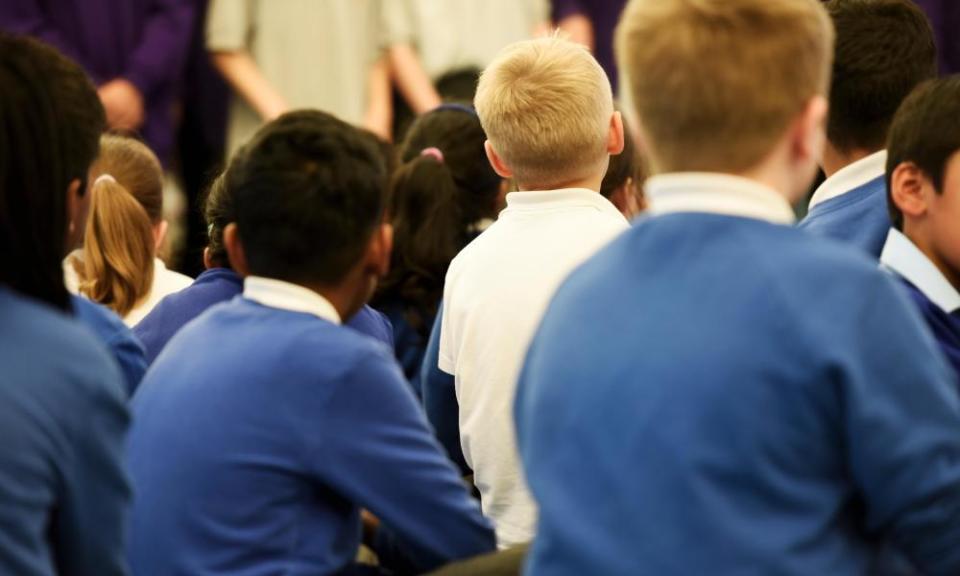One-third of children in UK 'have heard racist comments at school'

Almost a third of children have heard racist comments at school, according to research by an anti-bullying campaign that suggests they are most likely to have experienced racism by about the age of 13.
A poll of 1,000 six to 15-year-olds found that while, overall, about 32% children had heard someone be racist at school, this figure rose to more than half – 52% – among 13-year-olds.
The findings came as children across the UK are settling back into an uncertain school year following an extended absence as a result of months of closures during the coronavirus outbreak. More than a third – 33% – said they were more worried than usual about returning to class.
The research aims to shed light on the true extent of racism and bullying in schools, and to raise awareness among both pupils and their parents. It was commissioned by The Diana Award, a youth charity named for the former Princess of Wales, and the Nationwide building society.
The charity will hold a “big anti-bullying assembly” to be shown in primary school classrooms and homes on 28 September, which will involve celebrities including England defender Tyrone Mings and football manager Gareth Southgate.
Mings said: “I feel like everybody’s differences should be celebrated, there’s no shame or harm in being different so that’s why I’m putting my hand up to commit to putting an end to bullying.”
The survey found that children living in more diverse areas were far more likely to have heard racism, ranging from four in 10 of those living in London, making it the most likely area, to about one in seven of those living in Northern Ireland, the area where children were least likely to have heard racism.
The results were not disaggregated according to the ethnic background of respondents. However, the experience of one child quoted in the report lends credence to the suspicion that children with ethnic minority heritage are more likely to hear racism.
Rose Agnew, aged 14, from Warwick, said: “I’ve experienced a lot of racial attacks, whether it’s covertly or overtly. The more covert things being girls making fun of my hair or even some of the foods I would bring in at break.”
Related: The shocking truth of racism in British schools – podcast
In spite of widespread experiences of racism in schools – and the poll finding that three quarters of parents said they believed racism was a problem online – many parents are still not speaking to their children about racism, the research showed. Although the Black Lives Matter protests in June recently brought racism to the fore, about four in 10 parents surveyed admitted they had not spoken to their children about racism recently.
Bullying more generally remains a significant problem for schoolchildren, the research found, with nearly half – 46% – saying they had been bullied. Of those, more than three quarters said it had left them feeling anxious; almost six in 10 said it had made them skip school or not want to go; about the same proportion said it had resulted in them losing friends or switching friendship groups, and more than four in 10 said it had made them avoid social events.
Nearly one in seven affected children said they had changed schools or switched to homeschooling as a result of bullying. Almost one in 10 said bullying had made them feel suicidal.
The research, carried out by independent third-party research supplier Censuswide, polled 1,000 randomly selected six to 15-year-olds, and a further 1,000 randomly selected parents of six to 15-year-olds.

